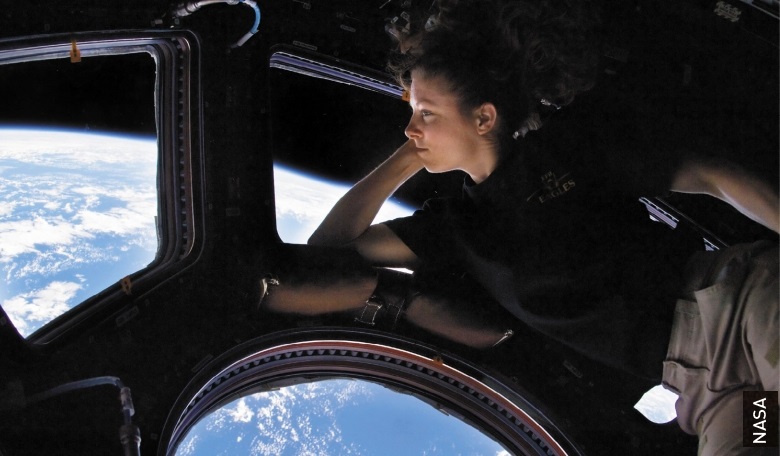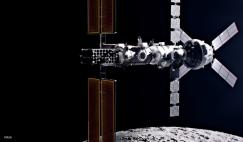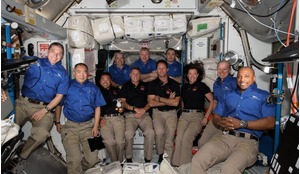To explore deep space, we need to do more than develop new technology. Humans must come to terms with the idea that Earth is no longer their only home. With the exploration of the Moon and beyond will come a changing sense of what Earth means to those intrepid human beings. This article, originally published in 2015 in one of the first issues of ROOM (#5), has been reimagined and updated by William Gerstenmaier, a highly respected elder statesman of the global space industry, to mark our 30th anniversary issue.
Donald Pettit is the first astronaut I remember telling me about coming back to Earth with a different sense of home. Don was part of the Expedition 6 crew that was on the International Space Station in 2003 when we lost the Space Shuttle Columbia. He left Earth believing he would return to Florida aboard the Shuttle. Instead, he landed in Kazakhstan in a Russian Soyuz vehicle. Don told me that when they opened the hatch and he smelled the grass and dirt, he felt he had come home. After six months in space, home was no longer Florida or Texas, or even the United States. Home was Earth.
As we venture farther from Earth on our journey to Mars, our sense of home will continue to change. The farther we go into space, the smaller home will become. At any given time, there are usually six people living aboard the International Space Station (ISS). By the end of 2021 that number has grown with typically seven or more crew on ISS. A recent Russian movie team visited the ISS for 12 days to capture scenes for a movie, which shows that in recent years space is becoming open to more people. Over two hundred miles above the planet’s surface, Earth is a dominant presence, filling the window. Countries are easily recognised; cities can be identified. Astronauts connect with loved ones by sharing their unique view of familiar places like football stadiums, rivers and mountains and amaze the world by capturing aurora pictures from above. The crews are off the Earth but still connected in strong ways to the planet.














